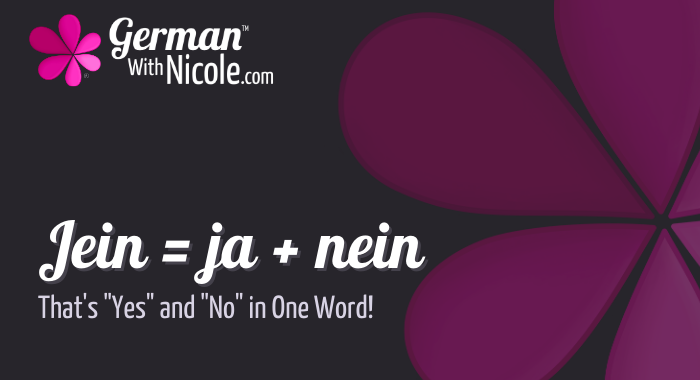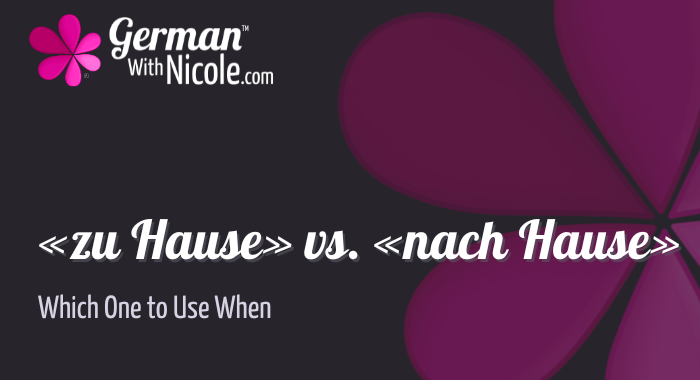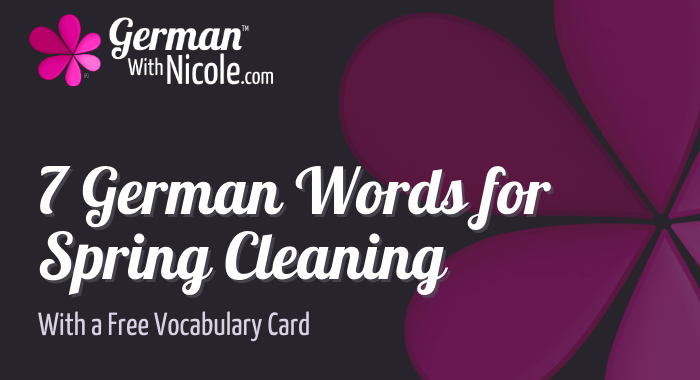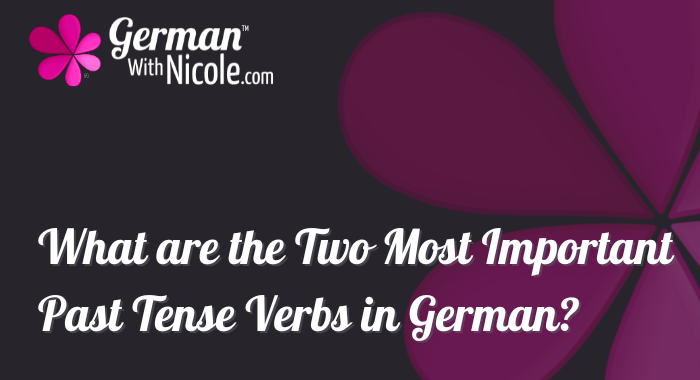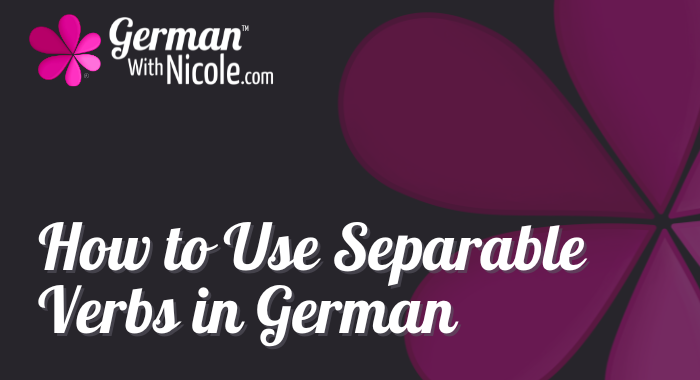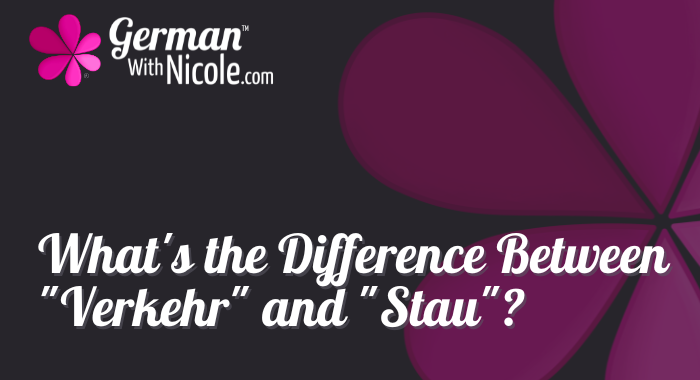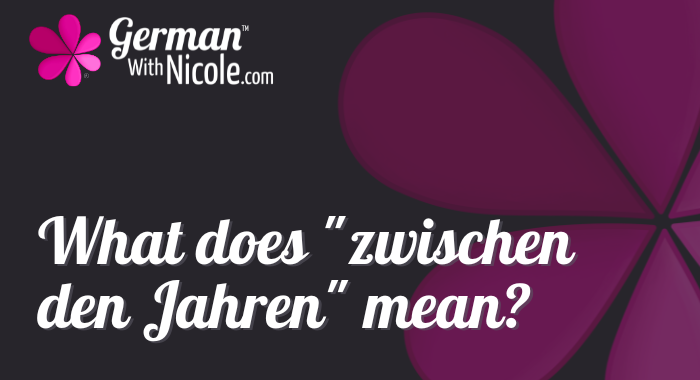das Blog
Vokabeln
Jein = ja + nein
"Jein" is definitely one of the best words in the German language.
It's one word for both yes and no.
ja + nein = jein
Knowing the word "jein" in German opens up a whole new world for German learners and their eyes get really big and their ears perk the first time they hear the word.
"Jein" also has several uses; for starters, "jein" allows you to give two simultaneous answers to one question: ja und nein - yes and no.
This is perfect for difficult answers.
When it's impossible to give a s…
"zu Hause" vs. "nach Hause"
The difference between "zu Hause" vs. "nach Hause" easily trips up German learners, but it doesn't have to trip you up if you use the tips below.
1. "zu Hause" = (at) home
"zu" is usually used as a preposition, so it would stand by itself and you might think that "zu Hause" means "to home."
This is an exception.
When you say "zu Hause," you're really using it as one block of language.
Think of the sentence "Ich bin zu Hause" and picture it like three wooden blocks:
[Ich] [bin] [zu Ha…
7 German Words for Spring Cleaning
Der Frühlingsputz ist ein Muss.
Spring cleaning is a 'must.'
It's not always a lot of fun, however it could be more interesting if you learn the German words for what you do.
Here are 7 words and phrases (including 6 verbs!) to help you learn German as you do your Frühlingsputz.
You can download the vocabulary card and print it out.
You could even use it as a checklist for your Spring cleaning.
Warum nicht?
If you like to do parts of your Spring cleaning over a couple of weekends, you cou…
11 German Words for Holy Week and Easter (Karwoche und Ostern)
Christian Holidays are often public holidays in Germany, so these are good words to know whether you're non-religious, atheist, agnostic, or religious.
The schedule carries over into school and school breaks, too. One of my clients is currently on Osterferien, Easter Holidays, and doesn't have school this week or next.
This week is Karwoche, or Holy Week, and in a non-pandemic year there would be much singing of the Bach Passions: the Matthäus-Passion (St. Matthew Passion), the Johannes-Passio…
What are the Two Most Important Past Tense Verbs in German?
When you first learn German - or first start learning German - you say everything in the present tense. You learn only a little bit of the past tense, mainly the two verbs here, and then later you learn the Perfekt, or the spoken past tense (Ich bin gefahren. Wir haben ein Buch gelesen.).
This is the order you would ideally learn everything in:
Present tense --> these two verbs --> a bunch of the Perfekt
If you learn the past tense in any other order than that, it is out of order.
No excepti…
How to Use Separable Verbs in German
Separable verbs are not hard to understand, however learning to use them takes practice and time.
For the purposes of this first section, we'll use two separable verbs in the present tense – so we'll use them to talk about now.
Right now.
A separable verb (in German: ein trennbares Verb, plural: trennbare Verben) is a verb that requires you to do three things :
-
remove the prefix from the verb
-
conjugate what's left
-
tack the prefix on to the end of the sentence.
That's…
What's the Difference Between "Verkehr" and "Stau"?
When you're at the A1 level, "Verkehr" and "Stau" can be tough to differentiate. Most people say "It has something to do with cars!!" If you said that, you're correct! But what's the difference?
The difference is essentially the same as in English, but one use of "Verkehr" might trip you up.
Read on to learn the difference and how not to get tripped up by the one use of "Verkehr"!
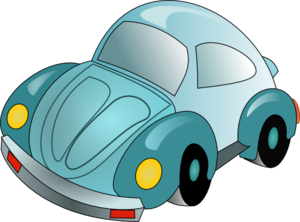 Was bedeutet "Verkehr"?
Was bedeutet "Verkehr"?
Verkehr is simply the word for traffic. You can have multiple types of Verkehr:
- …
"wohin" vs. "woher"
If you learned German in college, chances are you learned both “woher” and “wohin” at the same time.
Do you ever drive in reverse and forwards at the same time?
I didn't think so.
Why so many US textbook authors think this is a good idea is beyond me.
In drivers education, first you learn to drive forwards, you get a feel for the car, and then you learn to drive in reverse.
It's not that hard, textbook authors!
*Nicole facepalms and sighs with exasperation.*
That's a really good way…
4 Reasons Minimalists Should Learn German (And Why German is Easier than English!)
If you are already living with less or a minimum amount of possessions, or would like to, this philosophy works in your favor when learning German. Experience a language which is significantly more predictable than English; German is a great language to explore!
You'll also discover here how, in many ways, German is actually easier than English. I say this as a native English speaker, a near-native German speaker, and an instructor for both languages.
Of course both languages have their own un…
What does "zwischen den Jahren" mean?
At the end of the year a lot of Germans use the phrase zwischen den Jahren. Between the years?! That's not possible!
Or is it?
There are two things you need to know about this phrase zwischen den Jahren.
1. It's a real thing.
A lot of German offices shut down on Heiligabend (Christmas Eve) and don't open again until after Neujahr (New Year's Day). That means all their everything must be done on December 23rd! Since they won't be back to work until the new year has begun, then they have finis…
Categories
- A1 (69)
- A2 (54)
- B1 (46)
- B2 (23)
- C1 (22)
- Deutsch lernen (80)
- Einkaufen (15)
- Essen (12)
- Grammatik (23)
- Hören (14)
- Landeskunde und Kultur (50)
- Lesen (11)
- Musik (5)
- Nachrichten (4)
- Podcast (64)
- Pronunciation (3)
- Schreiben (3)
- Schwäbisch (4)
- Spiele und Spaß (Games and Fun) (12)
- Sprechen (13)
- Vokabeln (39)
- Video (11)
Would you like to hear about future German classes with Frau Warner?
With the E-Post, you'll receive information on German class registration and goings-on in German classes, all written by Frau Warner. You'll receive an email on Tuesdays, plus an extra email or two when class registration opens or there's something new.
